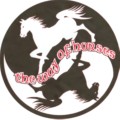
THE WAY OF HORSES |


Copyright © thewayofhorses
Eleanor
Richards |
INTERPRETING
FEED
TAGS By Eleanor Richards Copyright © 2004 |
Vitamins Did you take your vitamins today? Did your horse get his? And if you did and he did, did you get too many vitamins? Read the feed tag! Vitamins are organic. That means they consist of living enzyme complexes. Vitamins are needed for building body tissue and extracting energy from proteins, fats and carbohydrates. They help prevent diseases caused by nutritional deficiencies. Vitamins also play an important part in the healing process. Some vitamins are also antioxidants. Antioxidants bind to free radicals and prevent them from destroying cells. One thing to keep in mind when learning about vitamins is - a little goes a long way. Too much can do more harm than good. Products containing vitamins are some of the most oversold and misused supplements on the market. Vitamins are classified in two groups: "fat soluble" and "water soluble". Vitamins A, D, E and K are fat-soluble. They dissolve in fat and any excess will be stored in the body fat and liver. Vitamin C and the family of B vitamins are water-soluble. They dissolve in water and any excess is excreted in the urine. Water-soluble vitamins are not stored for future use. Vitamins are provided to the horse in various ways. Some are synthesized (produced) within the horse's own digestive system; others are provided by the feed (grain, forage or supplements); and one (vitamin D) is provided by the sun. Healthy adult horses grazing on green grass or eating plenty of good quality hay, while in the sun, generally receive all the vitamins they require. Unfortunately there are many horses that do not have access to this life style. Performance horses, mares in the last 90 days of gestation, lactating mares, growing horses, seniors, horses with health problems and horses consuming poor quality feed may need vitamin supplementation. In most cases if you feed plenty of good quality forage, offer free choice salt and chose a concentrate designed for your horse (which you feed according to the feeding directions) a vitamin supplement will not be needed. Take a look at your feed tag. You may notice it only lists one vitamin. Vitamin A is the only vitamin required to be stated on the tag by the Association of American Feed Control Officials. Vitamin A does not naturally occur in grains used in the production of feed, so it must be added. There are other vitamins in the product, but they are not required to be listed on the tag. Vitamins are stated in I.U. /lb. (International units per pound of feed). According to the National Research Council (1989) a 1,100 pound horse at a light work load has a requirement of about 22,000 International Units of vitamin A per day. The upper safe level of vitamin A is thought to be approximately 80,000 I.U. per day for a 1,100 pound horse. So, if you are feeding 10 pounds of grain per day that has 7,000 I.U./lb. you would be giving your horse 70,000 units of vitamin A. You would not want to add a supplement to your horse's diet that also contains vitamin A. Click here to read the next column: Feed Tag - Ingredients |